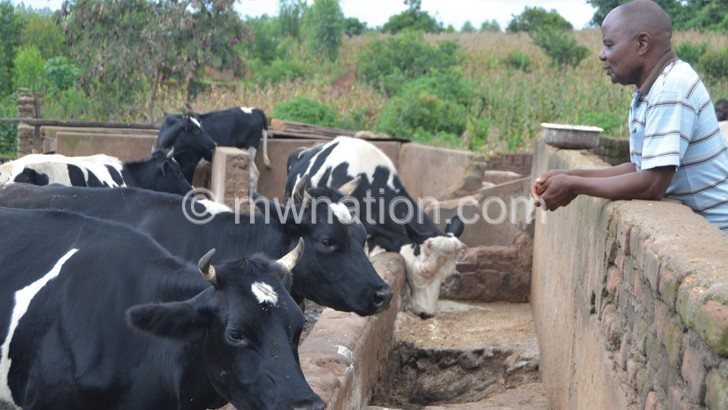Tick-borne disease centre in crisis, cattle at risk
The Centre for Ticks and Tick-Borne Diseases (CTTBD), which produced East Coast Fever (ECF) disease vaccine, is facing a financial crisis which may affect production of the cattle vaccine.
The centre, which is in Lilongwe, produces and supplies ECF vaccine to various countries in the eastern, central and southern Africa regions.

African Union (AU) commissioner for Agriculture, Water, Rural Development and Lands, Josefa Leonel Correia-Sacko, said in an interview in Lilongwe during her recent visit that the economic challenges have resulted in the centre’s failure to pay its staff for six months.
The commissioner was in the country to assess the situation, after which she will take the findings to the AU higher office for possible action.
Correia-Sacko said losing the centre would be catastrophic to animal production on the continent and would lead to economic struggles among many African farmers who depend on animals for their livelihood.
She said: “I have had a fruitful assessment visit of the centre and I also had a meeting with the Minister of Agriculture [Irrigation and Water Development]. We have agreed that we need to find lasting solutions to the situation because losing this centre would be detrimental to Africa’s animal production.”
The ministry’s director of animal health and livestock development Patrick Chikungwa in an interview also said Malawi’s beef production would be affected in the absence of the centre as it would be difficult to access ECF vaccines.
He described the CTTBD as a centre of excellence for the production of ECF vaccine in the southern African region, adding losing it would have a significant impact on livestock production in the country.
Said Chikungwa: “The vaccine serves most smallholder cattle farmers, saving their livestock from the risk of ECF. The centre also provides some screening diagnostic test for ECF disease which the Department of Animal Health and Livestock Development employs to support some of its decision in animal health strategy in managing this disease.”
He added that it is also an important collaborative centre for government and CTTBD researchers on ECF research.
Chikungwa, however, said ECF could not have any negative impact on people since the disease only attacks cattle.
The idea of opening the centre was hatched by the Organisation of African Unity (OAU) around 1979 to look into the development of vaccines for animals in the region. Over the years, the centre has been supplying ECF vaccines to Malawi, Tanzania, Zambia, Kenya, Rwanda and Uganda.
According to CTTBD acting director Mihji George Chaka, the centre has 30 staff who are owed money in different amounts, depending on their grades.
He added that some of the centre’s clients owe it $390 000 (about K281 million).
Chaka said: “As much as we acknowledge that at the moment there is poor cash flow, we know that the future is not as bleak because we have money that is with our clients who are obliged to pay us as per our agreement. We also have vaccines in stock which we can sale and make more money.”
Uptake of the vaccines in some countries has gone down due to a number of factors such as persistent drought which has led to animals to losing weight and being unhealthy.
One of the conditions for animals to be given ECF vaccine is that they need to be healthy which has been compromised with the drought. n





